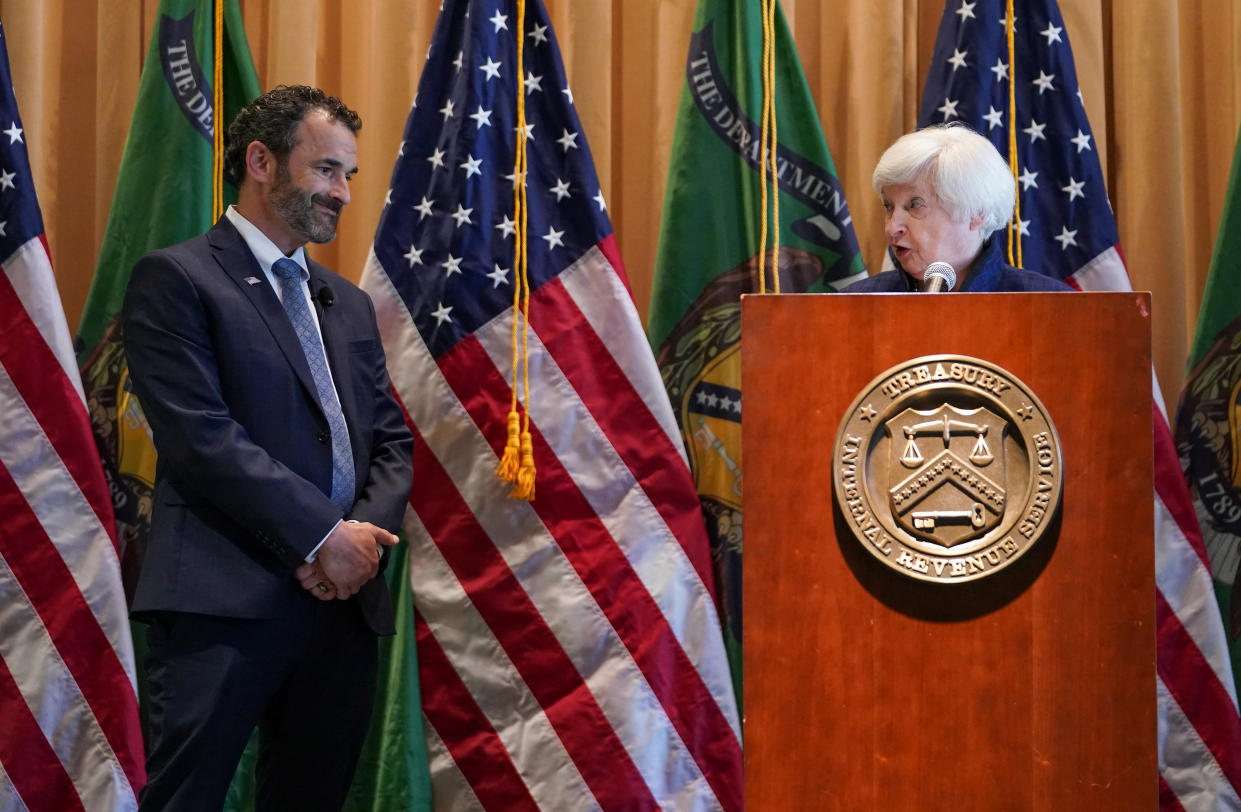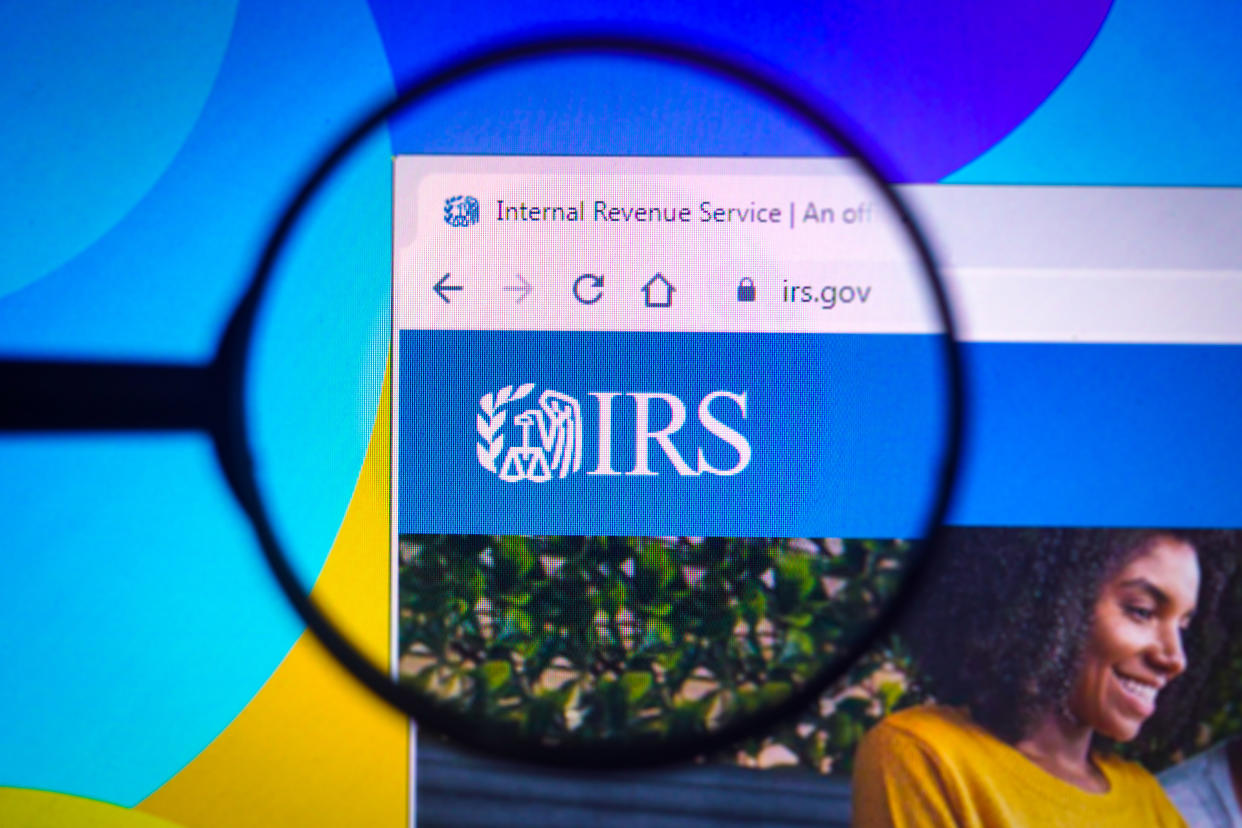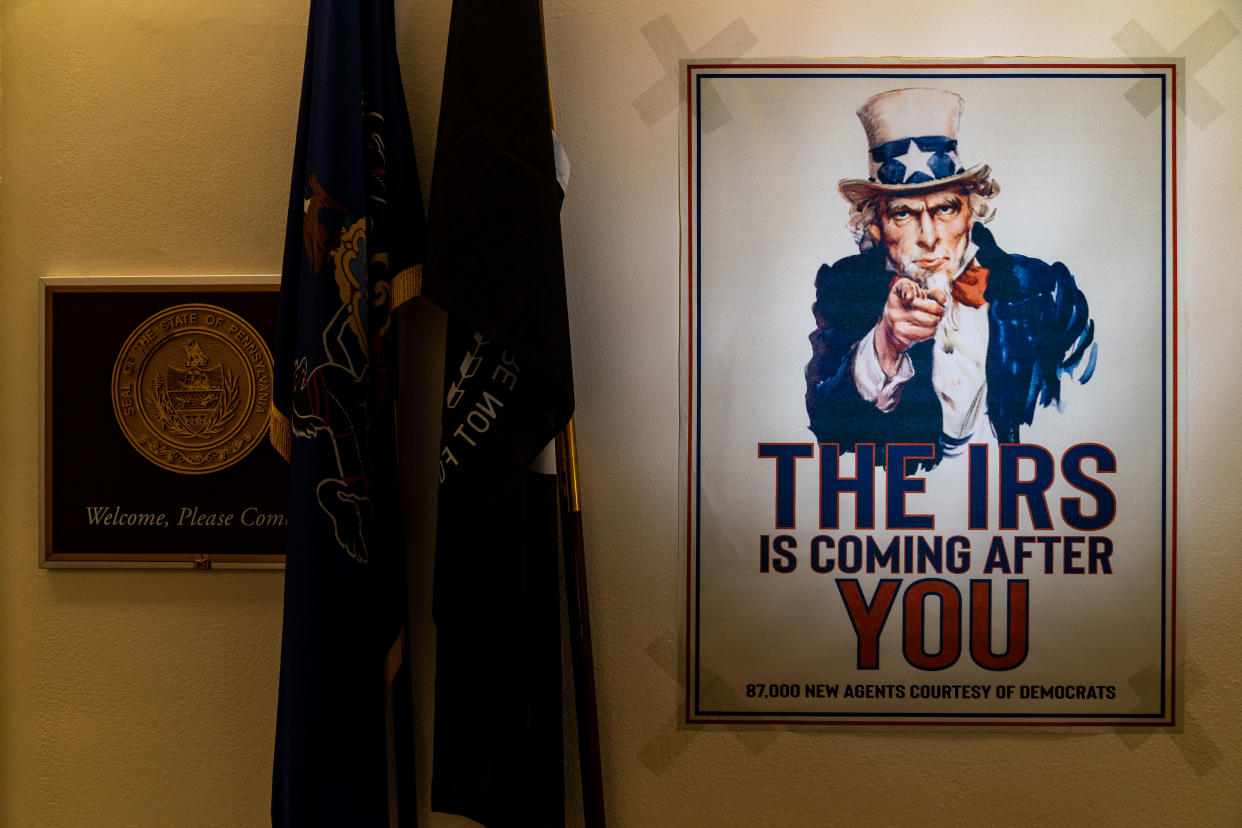The IRS lays out where the first chunk of its new $80 billion in funding will go
The Internal Revenue Service (IRS) plans to hire nearly 20,000 new employees by the end of the next fiscal year and get rid its outdated paper processes as it spends $80 billion over the coming decade in funds from the Inflation Reduction Act, the agency said in a new report on Thursday.
The 150-page "Inflation Reduction Act Strategic Operating Plan" provides new insight on exactly how the IRS plans to spend the money that was signed into law last year and details 190 key projects it will undertake in the years ahead.
The infusion will allow the agency to reverse at least a decade of underfunding, offer a less frustrating taxpayer experience, and also go after higher-income tax cheats, officials say. The last promise is one that Republicans and other critics of the agency are sure to monitor closely.
“We are already making progress in a number of areas and more is on the way,” said IRS Commissioner Daniel Werfel, who was recently sworn in. He noted how the IRS has already debuted a new online tool to respond to common notices and hired 5,000 call center workers for this tax-filing season.
Other efforts coming in the years ahead include making it possible to file all documents online, adding new enforcement aimed at America's top corporations, new web tools, and more.

Better technology and more people
Well before the release, Treasury Secretary Janet Yellen had laid out twin goals for the influx of money: improving customer service and launching new efforts to ensure that large corporations and the wealthy pay more of the taxes they owe.
On the first front, $6.77 billion is set to be spent on taxpayer services, operations support, and business modernization in coming years. The agency has become known recently for its reliance on paper and outdated technology which has led to massive headaches for taxpayers, punctuated by the backlogs that delayed refunds.
“This was an acute issue during the pandemic and we're committed to changing the technology to ensure it doesn't happen again,” Deputy Treasury Secretary Wally Adeyemo said Thursday.
The report also says the IRS will develop technology in the years ahead to help taxpayers identify potential mistakes before they file to speed refunds and maximize the deductions people are eligible for.

“For many, letters from the IRS in the mail could be a thing of the past,” Werfel said Thursday to underline the technological transformation he hopes to oversee in the years ahead.
The agency also plans to add more people. The new employees will come after a decade where a lack of funding under successive administrations has led the agency to dwindle from 95,370 employees in 2010 to just about 80,000 last year.
The IRS is aiming to hire over 10,000 new employees devoted to things like taxpayer services, operations support, and business modernization in coming years. That's in addition to over 7,000 devoted to increased enforcement that are set to be on the job by November 2024
“We're going to hire more customer service agents and data scientists than anyone ever expected the IRS to do,” Adeyemo said.
The hope is that increased computing power and technical expertise will allow the agency to more efficiently serve customers, while also chasing down tax cheats, the second big goal for the IRS.
Efforts they say will be focused ‘exclusively’ on Rich Americans
The Biden administration estimates that the top 1% of Americans evade $160 billion in taxes per year because of a lack of enforcement muscle from Washington.
The IRS will devote almost $1.8 billion to enforcement in coming years with those efforts growing over time and costing over $45 billion over the full decade. Those plans come amid deep GOP suspicion of the Biden administration and how it will implement the new enforcement money.
“I’m skeptical,” Senate Finance Committee Ranking Member Mike Crapo (R-ID) said during Werfel’s confirmation hearing in February over the guardrails to be set in place to ensure audits are directed on only on the rich.

Biden officials again promised Thursday that GOP fears were unfounded and that the influx of money won't lead to higher audit rates for small businesses and households making under $400,000.
“It makes sense to focus our initial Inflation Reduction Act implementation efforts exclusively on increasing our capacity to assess compliance of high-income and high-wealth individuals, complex partnerships, and large corporations,” said Werfel.
He added that this effort on the richest Americans will likely consume his agency for years to come as they untangle complex audits that often take agents up to 50 times longer to complete than the simpler returns among those with lower incomes.
Republicans have shot back that the sheer complexity of these returns from high-income individuals will tempt agents to focus on "lower-hanging fruit" in lower tax brackets.
Still, Democratic lawmakers and outside analysts promise a hefty return on investment, previously saying that the $80 billion will return over $200 billion to the Treasury in increased tax revenue.
Officials Thursday declined to outline how much savings they are now predicting, but Werfel said some of the return on investment will be quick.
He said the hiring of new compliance officials is already happening and “once that employee is in a seat and trained in doing their work, that return is immediate.”
Correction: This story has been updated to reflect that the IRS is planning to hire nearly 20,000 new employees by the end of the next fiscal year, not nearly 30,000 as previously reported. Within those new hires, the agency is set to devote over 10,000 of the new employees to things like taxpayer services, operations support, and business modernization and over 7,000 earmarked for enforcement roles, not 19,000 and 9,000 jobs as previously reported, respectively.
Ben Werschkul is Washington correspondent for Yahoo Finance.
Click here for politics news related to business and money
Read the latest financial and business news from Yahoo Finance
Download the Yahoo Finance app for Apple or Android
Follow Yahoo Finance on Twitter, Facebook, Instagram, Flipboard, LinkedIn, and YouTube
